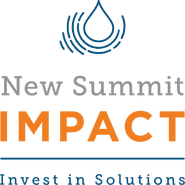Pathways to Planetary Health Forum: Paul Hawken & Jonathan F.P. Rose
We continued the Garrison Institute Forum Series on Pathways to Planetary Health with a conversation between Paul Hawken, leading environmentalist, entrepreneur, author, and activist, and Garrison Institute Co-founder Jonathan F. P. Rose. These interactive Forum sessions aim to expand our understanding around how each of us can play a role in supporting a regenerative, just, and prosperous world, nurturing the health and well-being of all of life.
Hawken is currently creating a new project focused on regeneration and is writing a book titled Regeneration: Ending the Climate Crisis in One Generation (Penguin 2021). Foundational to the project is the idea that climatic stability, biodiversity, social justice, environmental health, and economic well-being are inseparably intertwined within the act and movement to regeneration.
Taking cues from nature, regeneration is about creating systems that center and generate life.
“Nature makes itself whole again. It’s the default mode of life, and we are life, but we sometimes forget that,” Hawken said. However, our systems today don’t put life at the center—leading to degeneration. For example, Hawken argued that “we don’t have a healthcare system. We have a sick-care system. We don’t profit from health; we profit from illness. It’s upside down and backward. It’s the same the prison system… we profit from crime, from people acting out their suffering. As a country, we’ve oriented ourselves around pathologies, around death, around degeneration.”
Rose observed that “life is also not the organizing principle of our economy.” Hawken agreed, remarking that we are failing to invest in our future.
“The future is being stolen and we’re selling it in the present and calling it GDP. There is no reason whatsoever that we can’t have an economy that heals the future and call that GDP, too.”
As a sign of hope, Rose mentioned the Francis Economy, which is an effort to grow a generation of youth leaders who care for the earth.
Rose and Hawken also identified the connection between ecological and social justice. Anti-black racism, violence against women, terrorism, poverty, the destruction of earth, and other forms of oppression all “come from the same mind of dominance,” Hawken said.
“Violence against earth and people arises from this idea that we have to dominate in order to survive.”
Hawken suggested that the murder of George Floyd has helped reveal “how this country has been based on lie after lie after lie. Combined with Covid-19, it’s revealing that our systems are breaking down. We’re a failed state, acting like we don’t know that. I think that’s an opening as opposed to a closing.” This moment is an opportunity to look around and ask: Is this the world we want to be? Is this the people we want to be?
When it comes to responding to these challenges, Hawken noted that the majority of the world is disengaged. Addressing global warming and climate change is a particular challenge because people are often focused on the present and don’t respond as well to the prospect of future existential threats. “Unless we have an approach that is addressing current human needs, we won’t accomplish what we need to,” he asserted. He also emphasized the importance of fostering a sense of agency, helping people see the positive and negative impacts of their actions on the environment, and reconnecting with the earth and one another.
“At the very heart of regeneration is reconnecting…The act of reversing global warming is the act of stitching things back together, of reconnecting broken links. What better thing to do with one’s short life on this beautiful planet?”
Addressing climate change isn’t about guilt but possibility; these times are inviting us to participate in the beautiful work of regeneration. As Rose aptly said, “The regeneration of nature and the regeneration of humans are deeply interconnected.”
To go deeper, enjoy some of the resources referenced in the conversation, including the TEEB Reports on the Economics of Biodiversity, the films The Salt of the Earth and 2040, and the book Thomas Berry: A Biography.
* * *
Paul Hawken is an environmentalist, entrepreneur, author, activist, and consultant on climatic, economic, and ecological regeneration. He is the founder of Erewhon, Smith & Hawken, OneSun Solar (now Energy Everywhere), and Project Drawdown, and is the author of eight books including five national and NYT bestsellers. His forthcoming book, Regeneration: Ending the Climate Crisis in One Generation, will be published April 2021. He is a member of the Advisory Council of the Garrison Institute. Visit his website to learn more.
Jonathan F.P. Rose’s business, public policy, and not-for-profit work focus on creating a more environmentally, socially, and economically responsible world. Jonathan and his wife Diana Calthorpe Rose are the co-founders of the Garrison Institute. He serves on its Board and leads its Pathways to Planetary Health program.
* * *
This forum conversation was sponsored by New Summit Impact.
Your support matters. Our vision for a more just, compassionate world has never felt more urgent. While we cannot share physical space together, we remain committed to a shared practice of social and spiritual care. We are thankful for the opportunity to create a virtual sanctuary during this time of physical distancing. If you feel called to support our work, we welcome your tax-deductible contribution toward our efforts.
If you have any questions about this event or others, please contact us at events@garrisoninstitute.org.
